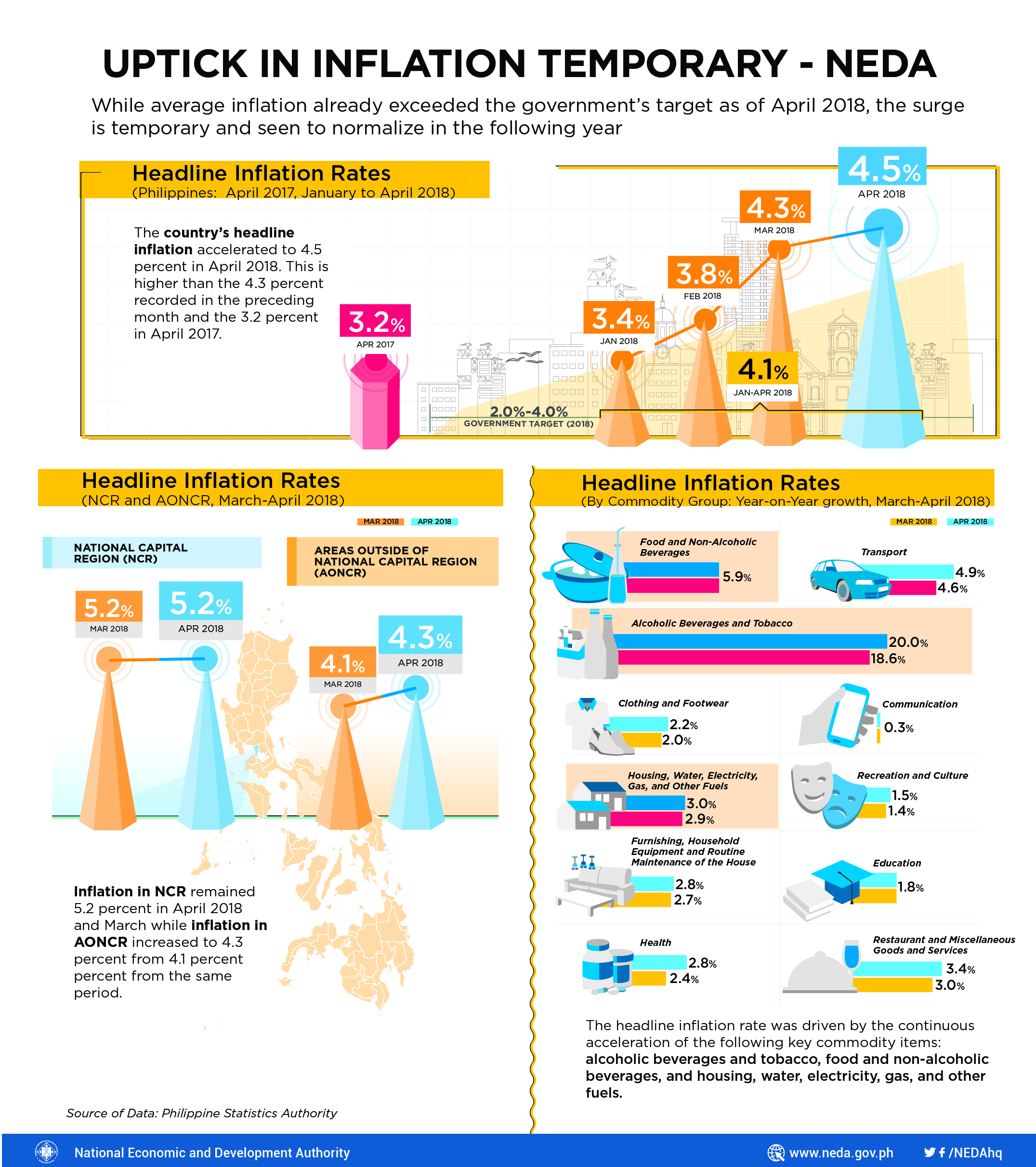May 4, 2018
While average inflation has already exceeded the government’s target as of April 2018, the surge is temporary and seen to normalize towards the end of the year, the National Economic and Development Authority said.
The Philippines Statistics Authority reported that headline inflation accelerated to 4.5 percent in April 2018. This is higher than the 4.3 percent recorded in the preceding month and the 3.2 percent in April 2017.
This brings the year-to-date average to 4.1 percent, slightly above the full-year target of 2.0-4.0 percent. Nevertheless, the inflation outturn for the period is within the Bangko Sentral ng Pilipinas’ expectation, as the headline inflation falls within their 3.9 to 4.7 percent forecast.
Socioeconomic Planning Secretary Ernesto M. Pernia said the current surge in inflation is partly due to the transitory impact of the Tax Reform for Acceleration and Inclusion (TRAIN) law but is expected to stabilize by next year.
“The current surge in inflation is partly an initial reaction to the implementation of TRAIN and is expected to be short-lived and should taper off over the coming months,” the NEDA official said. The more important sources, however, are the slew of world oil price increases and the depreciation of the peso.
Among major factors contributing to the recent surge in inflation were food and non-alcoholic beverages (5.9 percent), and alcoholic beverages and tobacco (20.0 percent).
Pernia added that while the government remains optimistic, it is important that price developments are closely monitored by the government.
“While the major factors contributing to the recent surge in inflation are temporary, we need to remain vigilant against emerging price pressures and to implement mitigating measures immediately,” he said.
Pernia stressed the importance of programs and policies that will help in mitigating risks of uptick in inflation in the near term, which include the amendment of Republic Act No. 8178 or the Agricultural Tariffication Act.
Replacing quantitative restrictions on rice imports with tariffs is expected to reduce local rice prices by as much as PhP4.00 per kilogram. This will bring down inflation and increase the purchasing power especially of the poor.
This will also create a more open trading environment for rice and will allow for the optimum use of farm resources.
Meanwhile, unconditional cash grants to the poorest 50 percent of households, and fuel subsidies for jeepney drivers through the Pantawid Pasada Program, will help ease the effects of higher prices on lower-income households. These mitigating programs will be greatly facilitated with the implementation of the National ID System.
The Philippine Statistics Authority (PSA) rebased its Consumer Price Index (CPI) to 2012 from the current 2006 base year, the tenth in its rebasing series.
The new base year was chosen to reflect the Family Income and Expenditure Survey (FIES) conducted in 2012. This was done to ensure that the basket of the reference year consistently represents the common goods and services consumed by households across the country.
-END-




